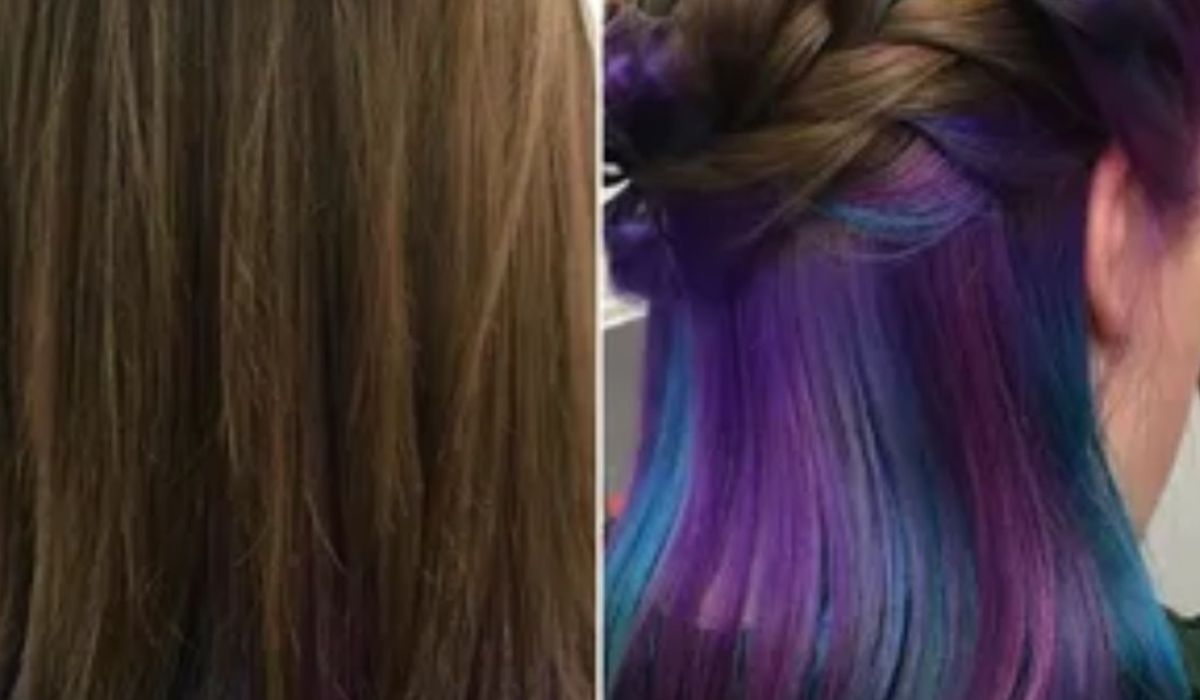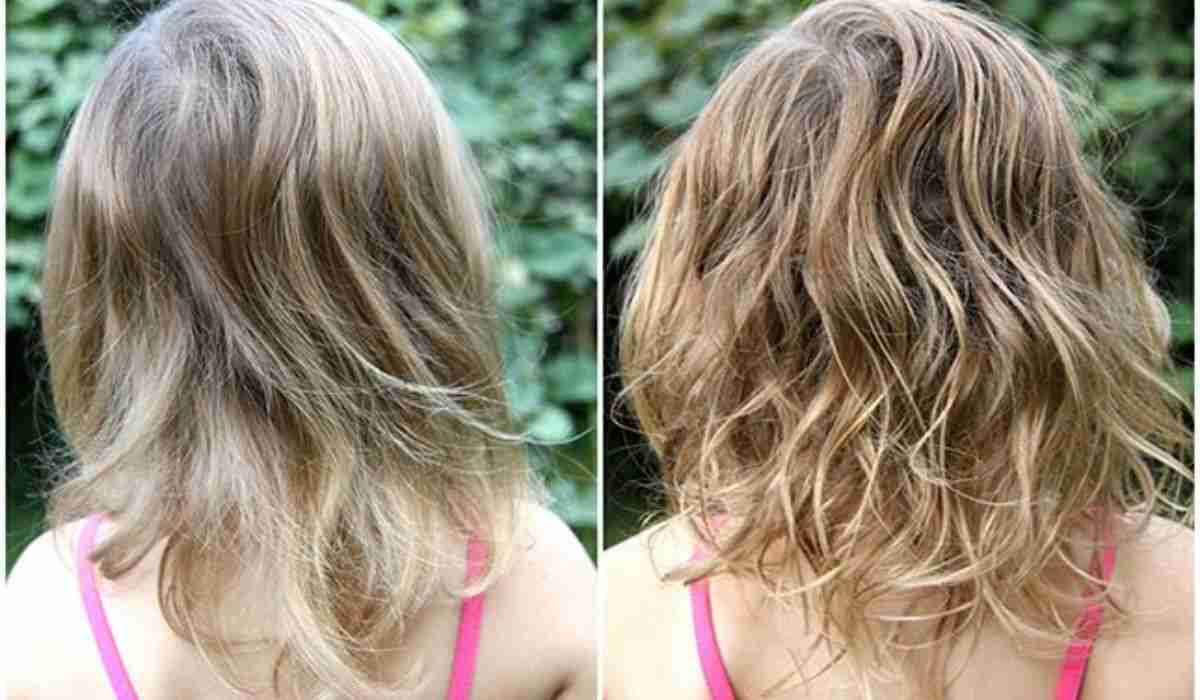Salt water strip hair color by opening the hair cuticle, causing the color molecules to leach out. It can make hair fade faster, especially if exposed regularly.
Ever wondered why your vibrant hair color seems to fade faster after a day at the beach? Well, it might just be the salty culprit! Saltwater has a knack for stripping away that gorgeous hue, leaving you with questions as your color washes away with the waves. Dive into the science behind it and discover the secret behind the disappearing act of your hair color in the salty sea.
Saltwater can indeed strip hair color over time. The salt in seawater can be harsh on hair, leading to the fading of color molecules. Salt can open the hair cuticle, allowing the color to wash out more easily. To protect colored hair, it’s advisable to minimize exposure to saltwater and use protective products, such as leave-in conditioners or UV-resistant sprays, when swimming in the ocean.
How To Use Salt Water For Hair?
To use salt water for your hair, start by mixing about a tablespoon of salt into a cup of warm water. Stir until the salt dissolves. After shampooing your hair, pour the salt water mixture over your hair and massage it into your scalp. Let it sit for a few minutes to allow the salt to work its magic. Rinse your hair thoroughly with fresh water afterward.
This simple saltwater treatment can help add texture to your hair, enhance natural waves, and even provide a refreshing cleanse. Just be sure not to overuse it, as salt can be drying, so it’s best to incorporate this treatment into your routine sparingly, perhaps once a week.
Salt Water Damage Hair
Mix in Moderation: When using salt water on your hair, it’s crucial to mix it in moderation. Excessive salt can be drying and potentially damaging to your hair.
Dilution is Key: Dilute the salt in warm water before applying it to your hair. A tablespoon of salt in a cup of water is generally a good ratio. This helps prevent concentrated salt from causing harm.
Limit Frequency: Avoid using salt water on your hair too frequently. While occasional use can create texture and enhance waves, using it excessively may strip away natural oils, leading to dryness and damage.
Post-Treatment Rinse: After letting the saltwater sit for a few minutes, be sure to rinse your hair thoroughly with fresh water. This helps remove any residual salt and prevents it from lingering and causing potential damage.
Moisturize Afterward: To counteract any potential drying effects, use a good conditioner or apply a leave-in conditioner to keep your hair hydrated. This extra step helps maintain the health and moisture balance of your hair.
Does Salt Water Cause Hair Loss?
There is no direct evidence to suggest that salt water causes hair loss. Salt water, typically from the ocean, may make your hair feel dry and rough due to its drying effect. However, occasional exposure to salt water is generally not harmful to your hair.
Hair loss is more commonly associated with factors like genetics, hormonal changes, and certain medical conditions. If you notice excessive hair loss, it’s advisable to consult with a healthcare professional to determine the underlying cause and explore appropriate solutions.
Salt Water For Hair Curls
Using salt water for hair curls is a simple and natural way to achieve beachy waves without heat styling. Saltwater adds texture to your hair, enhancing its natural curls and giving it a relaxed, tousled look. To create saltwater curls, mix a teaspoon of salt with a cup of water, and then spray or scrunch the mixture into damp hair.
Your hair air dry or use a diffuser for more defined curls. This method is perfect for those looking to embrace their natural waves and create a carefree, beach-inspired hairstyle. Just be sure to moisturize your hair afterward to prevent it from becoming too dry.
Benefits Of Washing Hair With Salt Water
Natural Exfoliation: Washing your hair with salt water helps exfoliate the scalp, removing dead skin cells and promoting a healthier environment for hair growth.
Oil Balance: Salt water can regulate the production of natural oils on your scalp, preventing excessive oiliness and contributing to a balanced and clean feeling.
Volume and Texture: The minerals in salt water can add volume and enhance the natural texture of your hair, giving it a beachy and tousled look.
Scalp Health: Salt water has antiseptic properties that can help combat dandruff and reduce the risk of scalp infections, promoting overall scalp health.
Stimulates Circulation: Massaging your scalp with salt water stimulates blood circulation, which can potentially encourage hair growth and strengthen the hair follicles.
Frequently Asked Questions
Can you leave salt water in your hair overnight?
It’s generally not recommended to leave salt water in your hair overnight. The salt can dry out your hair and scalp, leading to potential damage and dehydration. Rinse your hair after swimming or using salt water to avoid these issues.
Does salt water make straight hair curly?
No, salt water doesn’t make straight hair permanently curly. While it might create temporary waves or texture, the actual structure of your hair is determined by genetics and cannot be altered by salt water.
Is salt water good for hair growth?
Salt water can contribute to healthy hair growth indirectly. It helps exfoliate the scalp, removes impurities, and stimulates blood circulation, which may support a healthier environment for hair growth.
Conclusion
Salt water can indeed strip hair color. The salt in the water opens up the hair cuticle, allowing the color molecules to escape more easily. This process can lead to faded or washed-out hair color, especially with repeated exposure.
To preserve hair color, it’s advisable to protect your hair with a swim cap or rinse it thoroughly with fresh water after swimming in salt water. Using color-protecting hair products can help maintain vibrant and long-lasting colors despite exposure to salt water.













